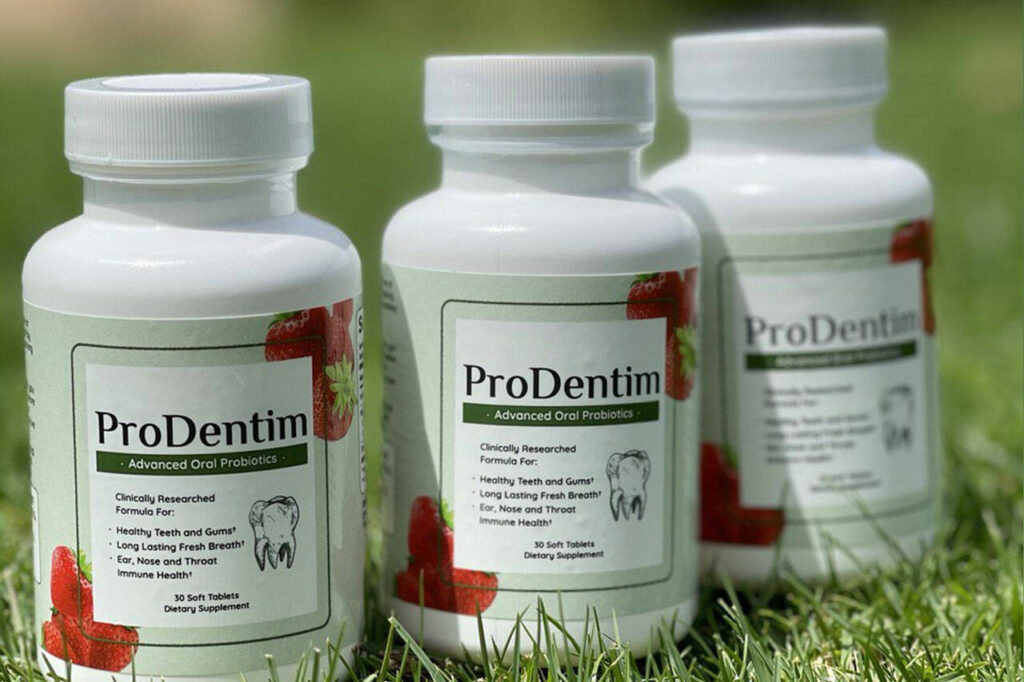How Toothache Causes Headache | The Surprising Connection

Toothache Causes Headache: Toothaches are one of the most common dental issues, but did you know that they can also cause headaches? If you’ve ever experienced both at the same time, you’re not alone. Toothaches and headaches are often connected due to the complex relationship between your oral health and overall well-being. In this blog post, we’ll dive deep into how a simple toothache can lead to throbbing headaches, the causes behind it, and how you can address both issues effectively. Read more…
Solution Toothache Causes Headache: What is ProDentim?
 ProDentim is an advanced oral health supplement designed to support healthy teeth and gums by combining probiotics, vitamins, and minerals that benefit your oral microbiome. It promotes good bacteria in the mouth, which can protect your teeth and gums from harmful bacteria that cause tooth decay, gum disease, and other dental issues.
ProDentim is an advanced oral health supplement designed to support healthy teeth and gums by combining probiotics, vitamins, and minerals that benefit your oral microbiome. It promotes good bacteria in the mouth, which can protect your teeth and gums from harmful bacteria that cause tooth decay, gum disease, and other dental issues.
Go To Official Website | click here…
To get online Prodentim | click here…
pricing of prodentim.

Understanding the Connection Between Toothache and Headache
A toothache and a headache may seem like two separate issues, but they share a close link due to the nerve pathways in the body. When a toothache arises, it can stimulate nearby nerves, leading to pain that radiates into the head, triggering a headache. This phenomenon is referred to as “referred pain,” where pain is felt in a location different from its origin.
To understand why a toothache can cause a headache, let’s first look at some of the key structures involved.
The Trigeminal Nerve
The trigeminal nerve is a major nerve responsible for sensations in your face and head, including the teeth and jaw. This nerve has three branches: one that affects the upper jaw, another for the lower jaw, and the third covering the rest of your face. When there’s an issue with one part of this nerve, such as a toothache, the pain can spread, leading to discomfort in other areas, such as the head, causing a headache. Toothache Causes Headache
The Temporomandibular Joint (TMJ)
Another factor in the toothache-headache connection is the temporomandibular joint (TMJ), which connects the jaw to the skull. Any misalignment, infection, or inflammation in this joint due to dental problems can lead to tension headaches or even migraines. People suffering from temporomandibular joint disorders (TMD) often experience both jaw pain and headaches simultaneously.
Common Dental Problems That Cause Headaches
Now that we’ve established how a toothache can trigger headaches, let’s look at the common dental issues that might be causing your head pain.
1. Tooth Decay and Cavities
One of the most common causes of toothaches is tooth decay or cavities. When decay penetrates deep into the tooth and reaches the nerves, it causes sharp, intense pain. This pain can then spread to the head, leading to a headache. If left untreated, cavities can worsen and result in more severe issues like infections or abscesses, both of which can cause more frequent and intense headaches.
2. Gum Disease
Gum disease, also known as periodontal disease, is an infection of the gums that can affect the bones and tissues surrounding the teeth. In its advanced stages, gum disease can lead to tooth loss. The inflammation caused by gum disease can spread to other parts of the body, including the head, resulting in chronic headaches. People with severe gum disease may experience migraines as a result of the persistent infection and inflammation.
3. Tooth Abscess
A tooth abscess occurs when a bacterial infection creates a pocket of pus in the tooth or surrounding tissue. Abscesses are extremely painful and can cause severe headaches. The infection can spread through the bloodstream, leading to other complications. An untreated abscess can escalate into a life-threatening situation, so it’s crucial to seek treatment immediately.
4. Bruxism (Teeth Grinding)
Bruxism, or the grinding and clenching of teeth, is another dental issue that can lead to headaches. People who grind their teeth often experience stress or anxiety, and the constant grinding can put pressure on the TMJ, leading to headaches and facial pain. In many cases, individuals who suffer from bruxism are unaware of the condition until they start experiencing frequent headaches, jaw pain, or tooth damage.
5. Wisdom Teeth
Emerging or impacted wisdom teeth can cause significant discomfort and lead to headaches. When these teeth don’t have enough room to grow, they can become impacted, causing pain in the jaw and radiating into the head. Additionally, wisdom teeth infections can contribute to painful headaches.
6. Misaligned Bite
If your teeth are not properly aligned, it can cause tension in the jaw muscles, leading to both toothaches and headaches. Malocclusion, or a misaligned bite, puts extra stress on your teeth and jaw, making it difficult to chew or speak. Over time, this stress can lead to persistent headaches and even neck pain.
How to Prevent and Treat Toothache-Related Headaches
Now that you know the causes of toothache-related headaches, let’s explore some ways to prevent and treat these issues.
1. Maintain Good Oral Hygiene
The best way to prevent dental problems and the headaches they cause is by maintaining good oral hygiene. Brush your teeth twice a day with fluoride toothpaste, floss daily, and visit your dentist for regular check-ups. Good oral hygiene can prevent tooth decay, gum disease, and other conditions that lead to pain and discomfort.
2. Address Dental Problems Early
If you experience a toothache or notice any signs of dental problems, such as bleeding gums or tooth sensitivity, don’t ignore them. Early intervention can prevent the problem from worsening and causing headaches. Regular dental check-ups can catch potential issues before they become severe.
3. Treat Bruxism
If you grind your teeth at night, your dentist may recommend wearing a mouthguard to protect your teeth and reduce tension in your jaw. Treating bruxism can reduce the occurrence of headaches caused by teeth grinding.
4. Seek Treatment for TMJ Disorders
If you suspect that your headaches are related to TMJ disorders, consult with your dentist or a TMJ specialist. They can recommend treatments such as physical therapy, medications, or even surgery to alleviate your symptoms.
5. Pain Management
Over-the-counter pain relievers can help alleviate headaches caused by dental issues. However, it’s essential to address the root cause of the problem rather than relying solely on medication for relief. Consult your dentist for a proper diagnosis and treatment plan.
6. Wisdom Tooth Removal
If your wisdom teeth are causing you pain, your dentist may recommend removing them to prevent further complications. Wisdom tooth extraction can alleviate headaches and prevent future infections or misalignments.
Conclusion
Toothaches and headaches often go hand in hand, as dental problems can lead to referred pain in the head. Whether it’s due to tooth decay, gum disease, or TMJ disorders, understanding the connection between your oral health and headaches is crucial for effective treatment. By maintaining good dental hygiene, addressing problems early, and seeking professional care, you can prevent and manage both toothaches and the headaches they cause.
Remember, if you’re experiencing persistent toothaches or headaches, consult with your dentist or healthcare provider to get a proper diagnosis and treatment plan. A healthy mouth leads to a healthier, pain-free life!
you also want to read this click below links…
Prodentim: Revolutionizing Oral Care with Advanced Technology
Affiliate Disclaimer: Some of the links on this website are affiliate links, which means I may earn a commission if you make a purchase through these links at no extra cost to you. I only recommend products and services that I believe will add value to my readers. Your support helps me continue to provide valuable content. Thank you!

